Does Apple Cider Vinegar Whiten Teeth?
December 22nd, 2016
 Apple cider vinegar has long been touted as a natural health remedy. It can aid digestion, help control blood sugar levels, alleviate sunburns, make hair shinier, and maybe even play a role in weight loss!
Apple cider vinegar has long been touted as a natural health remedy. It can aid digestion, help control blood sugar levels, alleviate sunburns, make hair shinier, and maybe even play a role in weight loss!
Another claim about the benefits of using apple cider vinegar is that it can act as a natural tooth whitener. Is the miracle cure apple cider vinegar really a whitening agent and, if so, how safe is it to use at home?
What is Apple Cider Vinegar?
Vinegar is a sour liquid made during a fermentation process that converts sugar to alcohols and then the alcohol into acetic acid. Apple cider vinegar, which has about 5% acidity, comes from apples and plain water. It’s used for marinades, salad dressings, pickling, and a wide variety of home remedies, including teeth whitening.
The acetic acid in apple cider vinegar has been reported to help remove plaque from teeth and remedy stains caused by smoking or drinking red wine or coffee. Apple cider vinegar is also touted for improving overall mouth health by killing “bad” bacteria and fostering healthy bacteria.
Nearly everyone wants brilliant white movie star teeth, and apple cider vinegar could be an easy, accessible way to get a little closer to that goal. Instead of making expensive, time-consuming teeth whitening products or in-office appointments, just reach in the pantry!
Mixed with water and used as a rinse or mouthwash, or combined with baking soda and rubbed directly onto the teeth as a paste, apple cider vinegar is getting recognition as an all-natural alternative to traditional whitening mouthwashes and toothpaste. But is it as great as some people say?
Potential Risks of Vinegar as a Whitening Agent
As with any “cure-all” treatment, there’s a catch. Apple cider vinegar is very acidic, with a pH of 3.075, and using too much can damage the tooth enamel, which starts to erode at a pH of 5.5.
Enamel erosion will actually make the tooth surfaces appear darker as the shiny white outer layer breaks down. When the protective outer enamel becomes weakened from too much acidity, it can lead to tooth sensitivity.
Although sometimes ingested to help ward off minor illnesses like colds and sore throats, swallowing undiluted apple cider vinegar can also cause throat irritation.
The Best Way to Use Apple Cider Vinegar to Whiten Teeth
To safely use apple cider vinegar as an organic, all-natural tooth-whitening agent, the key is to dilute and use sparingly. Create a rinse of one part apple cider vinegar and two parts water, and gently swish around the mouth for about one minute.
To avoid damaging the enamel, be sure to dilute the vinegar before it comes in contact with the teeth. After rinsing, wait at least 30 minutes before brushing teeth. Even diluted, the vinegar can be abrasive, and applying a rough toothbrush to the tooth’s enamel surfaces right away can do more harm than good.
Apple cider vinegar as a whitening rinse won’t lead to immediately brighter, whiter teeth. Consistent use over time – making sure to dilute to avoid enamel erosion – can eventually lead to a whiter smile. Always be sure to consult a dentist first to make sure it’s the best choice. Often, manufactured mouthwashes and toothpaste can deliver visible results more quickly without the risks, although they typically are not all-natural products.
With careful use, apple cider vinegar may be a smart option for organic tooth whitening. As with any product, natural or manufactured, consult a health professional before use and use in moderation for the greatest benefit with minimal risk.
Want another option for whiter teeth? Water Tower Dental Care offers Zoom! Teeth Whitening. Zoom! is a leading teeth whitening system that brightens smiles up to eight shades in about an hour. For more information on Zoom! or other tips for a healthier, whiter smile, Contact us to learn more.

 For the most gorgeous teeth in Chicago – or anywhere –
For the most gorgeous teeth in Chicago – or anywhere –  Hydrogen peroxide is a medicine cabinet staple. Used for cleaning up scrapes and cuts, it also offers directions for oral use right on the label. But can it be harmful to your teeth?
Hydrogen peroxide is a medicine cabinet staple. Used for cleaning up scrapes and cuts, it also offers directions for oral use right on the label. But can it be harmful to your teeth? 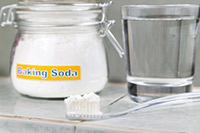 If you’re a fan of DIY dental care, you’ve probably heard of using baking soda to clean and whiten your teeth. Before you take on any DIY healthcare you read about online, it’s important to do your research. Using baking soda too regularly could cause irreversible damage to your enamel. However, that doesn’t mean you should never use baking soda on your teeth. Let’s explore if baking soda is actually good for your teeth now.
If you’re a fan of DIY dental care, you’ve probably heard of using baking soda to clean and whiten your teeth. Before you take on any DIY healthcare you read about online, it’s important to do your research. Using baking soda too regularly could cause irreversible damage to your enamel. However, that doesn’t mean you should never use baking soda on your teeth. Let’s explore if baking soda is actually good for your teeth now.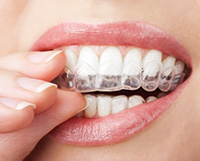 Dentists have come a long way in the realm of
Dentists have come a long way in the realm of 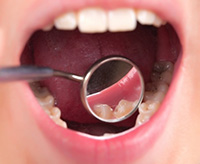 Everyone hates teeth discoloration, which is why whitening strips are so popular. But what do you do when the discoloration appears in the form of white spots on your teeth? Although these spots are primarily a cosmetic concern, they can affect oral health and should be treated.
Everyone hates teeth discoloration, which is why whitening strips are so popular. But what do you do when the discoloration appears in the form of white spots on your teeth? Although these spots are primarily a cosmetic concern, they can affect oral health and should be treated.
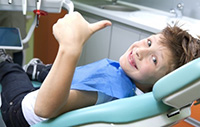 When it comes to your social and professional life,
When it comes to your social and professional life, 
 The last thing you want is yellow teeth after years of wearing braces. But unfortunately, it’s a very common occurrence. If you don’t take care of your mouth while you’re wearing braces, you might be surprised to see white squares where your braces were on yellow-stained teeth after your dentist removes them. Thankfully, it’s easy to avoid this experience. Here are some reasons why people get yellow teeth after braces and how to prevent this from happening. We’ll also talk about how you can fix stained teeth after braces.
The last thing you want is yellow teeth after years of wearing braces. But unfortunately, it’s a very common occurrence. If you don’t take care of your mouth while you’re wearing braces, you might be surprised to see white squares where your braces were on yellow-stained teeth after your dentist removes them. Thankfully, it’s easy to avoid this experience. Here are some reasons why people get yellow teeth after braces and how to prevent this from happening. We’ll also talk about how you can fix stained teeth after braces.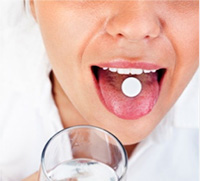 When it comes to taking care of your teeth, there’s a lot more you can do than just brushing and flossing. In fact, those are just the first two steps to keeping your teeth healthy. Adding oral probiotics to your teeth-cleaning routine will help to ensure that you keep cavities away and an attractive smile going.
When it comes to taking care of your teeth, there’s a lot more you can do than just brushing and flossing. In fact, those are just the first two steps to keeping your teeth healthy. Adding oral probiotics to your teeth-cleaning routine will help to ensure that you keep cavities away and an attractive smile going. When it comes to taking care of our teeth, we generally hear the same kind of advice all of the time: brush and floss everyday and don’t eat too much candy. While this advice is extremely important, there are a lot of additional ways to keep your teeth healthy as well. We asked our dentists at Water Tower Dental Care to share some tips for taking care of your teeth that you probably haven’t heard before. Here are 6 unusual teeth tips straight from our dentists.
When it comes to taking care of our teeth, we generally hear the same kind of advice all of the time: brush and floss everyday and don’t eat too much candy. While this advice is extremely important, there are a lot of additional ways to keep your teeth healthy as well. We asked our dentists at Water Tower Dental Care to share some tips for taking care of your teeth that you probably haven’t heard before. Here are 6 unusual teeth tips straight from our dentists.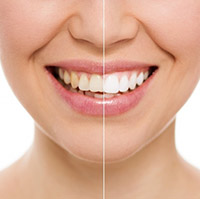 There’s a reason
There’s a reason  Sparkling white smiles are impressive - There’s no doubt about it. White teeth exude confidence, youth and healthiness, which is why so many people get their teeth whitened. But as the teeth whitening trend has picked up more and more steam, it’s important to ask yourself about the safety of teeth whitening treatments.
Sparkling white smiles are impressive - There’s no doubt about it. White teeth exude confidence, youth and healthiness, which is why so many people get their teeth whitened. But as the teeth whitening trend has picked up more and more steam, it’s important to ask yourself about the safety of teeth whitening treatments.
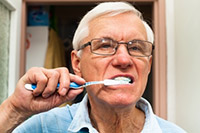 Just as you might expect, as the rest of your body ages, your teeth age as well. So what exactly happens to your teeth as they get older and what can you do now to help them out?
Just as you might expect, as the rest of your body ages, your teeth age as well. So what exactly happens to your teeth as they get older and what can you do now to help them out?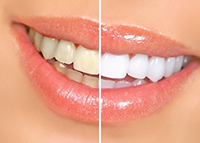 Teeth whitening isn’t just for aesthetic purposes anymore. Did you know it can actually have oral health benefits? While many patients come to our offices to receive safe and fast teeth whitening to make their smiles brighter and give themselves a great boost of confidence, many don’t realize that they are also helping control the pH level of their mouth. This is an important factor when it comes to controlling plaque, bacteria, and tooth decay.
Teeth whitening isn’t just for aesthetic purposes anymore. Did you know it can actually have oral health benefits? While many patients come to our offices to receive safe and fast teeth whitening to make their smiles brighter and give themselves a great boost of confidence, many don’t realize that they are also helping control the pH level of their mouth. This is an important factor when it comes to controlling plaque, bacteria, and tooth decay.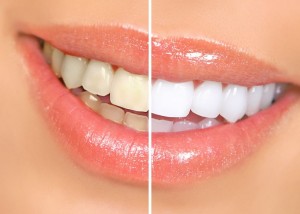
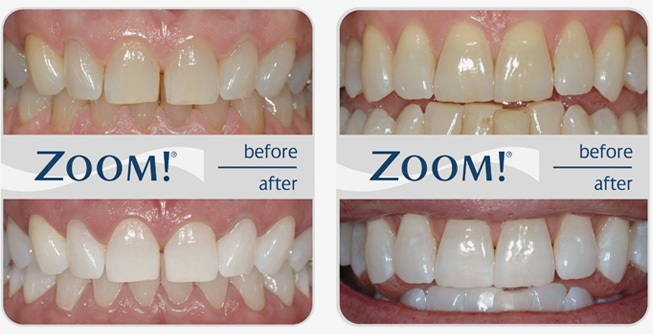
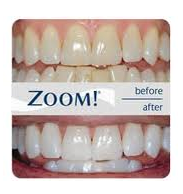 For every great, reliable method for tooth care, there are dozens of imitators and "fast-acting" methods that try to cash in on new trends. The process of
For every great, reliable method for tooth care, there are dozens of imitators and "fast-acting" methods that try to cash in on new trends. The process of 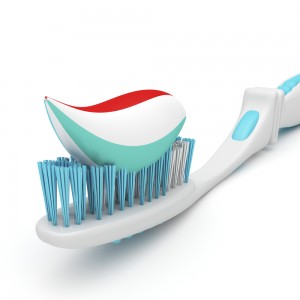 Consider this: most people wear a new outfit every single day. We put on a clean shirt and a clean pair of pants to look presentable and respectable. If we were to spill coffee or some pasta sauce on our shirt, we wouldn't continue wearing that same shirt for three more days or probably even a day. So why would we treat our teeth any differently? We wear them everyday, with every outfit. Shouldn't they be as clean and respectable as the clothes we wear? Of course, pasta sauce and
Consider this: most people wear a new outfit every single day. We put on a clean shirt and a clean pair of pants to look presentable and respectable. If we were to spill coffee or some pasta sauce on our shirt, we wouldn't continue wearing that same shirt for three more days or probably even a day. So why would we treat our teeth any differently? We wear them everyday, with every outfit. Shouldn't they be as clean and respectable as the clothes we wear? Of course, pasta sauce and 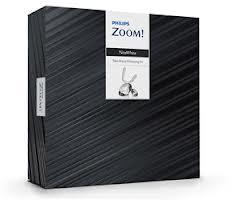 While toothpastes and mouthwashes can help whiten teeth, they often are minimally effective. For better results in the privacy of your own home, an over the counter, take-home teeth whitening kit can be more effective.
While toothpastes and mouthwashes can help whiten teeth, they often are minimally effective. For better results in the privacy of your own home, an over the counter, take-home teeth whitening kit can be more effective.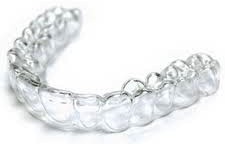 On average, we recommend the trays be used for one hour a day for a total of two weeks. At that time, a follow-up appointment is made to show you the change of shade and to recommend if you should continue the treatment or only refer to touch-up applications thereafter.
On average, we recommend the trays be used for one hour a day for a total of two weeks. At that time, a follow-up appointment is made to show you the change of shade and to recommend if you should continue the treatment or only refer to touch-up applications thereafter. Like a majority of Americans waking up early and setting off to work every morning, we enjoy a good cup of coffee to help wake us up. That shot of caffeine helps us get moving at the beginning of our day and keeps us on our toes through the afternoon. With almost daily consumption of coffee though, many of our patients ask if it's bad for their teeth. This is a hard question to answer, mostly because we enjoy drinking coffee just as much as the next person, so telling our patients that it's bad for them would make us feel just as guilty for drinking it! However, joking aside, coffee isn't the best drink for your teeth, however it's not the worst. Let's explain.
Like a majority of Americans waking up early and setting off to work every morning, we enjoy a good cup of coffee to help wake us up. That shot of caffeine helps us get moving at the beginning of our day and keeps us on our toes through the afternoon. With almost daily consumption of coffee though, many of our patients ask if it's bad for their teeth. This is a hard question to answer, mostly because we enjoy drinking coffee just as much as the next person, so telling our patients that it's bad for them would make us feel just as guilty for drinking it! However, joking aside, coffee isn't the best drink for your teeth, however it's not the worst. Let's explain.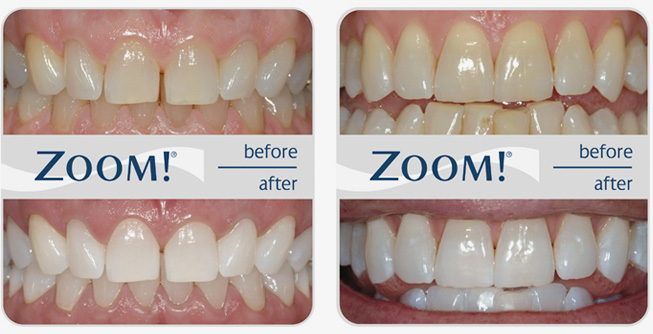





 Website Powered by Sesame 24-7™
Website Powered by Sesame 24-7™